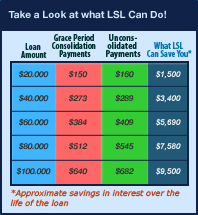 |
| |
 |
Experts forecast that this year's hurricane season, which officially begins today, June 1, will be another doozy, with an above-normal number of storms.
Yikes! Many of us are still waterlogged from last season. We've learned a few things, though: You only want to see a tree in your house at holiday time, and that the extra-heavy outdoor furniture you splurged on doesn't seem like such a good idea when you're lugging it inside as those cruel winds begin to blow. We've also become a bit wiser about how not to get soaked financially.
There's one good thing about hurricanes: You usually have enough advance notice to prepare yourself. Other disasters, such as earthquakes and tornadoes, strike quickly, with little warning. That's why it's a good idea for all Fools to be prepared. We'll leave it to others to teach you how to shore up your roof and stock up on water, and you can decide whether you'd prefer to dine on canned tuna or cold cereal while the power is out. For our part, we've come up with seven Foolish steps you should take now to prepare yourself financially to weather a natural disaster:
1. Protect your property. Make sure your home and business are up to current safety codes. Consider having your home evaluated by a building inspector to find out whether any structural improvements could prevent or reduce major damage from disasters. Save your contracts and receipts from any completed work, because you might be able to use these to lower your insurance premium or claim tax deductions.
2. Maintain adequate insurance. Review your homeowner's insurance and understand what is covered. Many hurricane victims (yours truly included) were surprised to learn that damage to pools and docks were not included in our policies. Decide whether you need additional coverage for other assets, such as your home office, jewelry, art, or that special collection of vintage lunchboxes. Have your home reappraised periodically to make sure the policy covers its real replacement cost. If you're a renter, consider purchasing renter's insurance, which pays for your damaged or lost possessions. Check out our Insurance Center for lots of information.
Flood insurance is crucial — even for Fools who don't reside in flood zones. According to the Federal Emergency Management Agency, 25% of all flood claims occur in low- to moderate-risk areas. Insurance for homeowners and renters does not cover flood damage. At an average annual premium of $300 for approximately $100,000 of coverage, it might make you sleep a bit better. As with all these tips, don't wait until you feel the raindrops falling: Normally there's a 30-day waiting period between the time the policy is purchased and the date coverage becomes effective. In some areas, no new policies are written once the official hurricane season begins.
3. Hoard cash. Cash is king — in no time more so than during an emergency. Instead of facing long waiting lines and potential shortages in the face of an imminent storm, go to the bank now. Withdraw at least $500, in small denominations, or a larger amount if possible, since you might need to cover expenses like food, shelter (you may need to evacuate), and gas for at least a week. Even though a storm may be over in a day, often its effects last far longer, with electricity and telephone outages downing both ATMs and computerized bank networks.
This cash is in addition to the emergency funds you should have already Foolishly siphoned away. Check out our Short Term Savings Center to learn more about emergency funds. You may need to call on them if your job or business suffers from the immediate or long-term impact of a disaster.
4. Go shopping. If you don't already have shutters, go now and purchase plywood for boarding up windows and doors: It won't be there at the same price (if at all) when you really do need it. Buy some extra flashlights, batteries, and tarps while you're there, too.
5. Inventory and document your possessions. Haul out that camera and visually document your belongings, including any outdoor furnishings. Then comes the hard part: Write a description of each item, as fully as possible, including where you bought it, how much it cost, and its model and serial number. Also, locate any purchasing records. Obtain updated professional appraisals for significant assets. These records may be vital to helping substantiate losses later with your insurance company — or to claim tax deductions.
6. Put together an evacuation box. Buy a lockable "evacuation box" to grab in the event of an emergency. Keep this box with you at all times — do not leave it in your car when you stop for a bathroom break or overnight at the motel. Remember that your car will be stuffed with other supplies (and your family), and space will be tight. The following important papers should be placed within the box, preferably in sealed, waterproof bags:
7. Protect your credit and portfolio. Keep those credit cards paid off so you'll be able to draw on them if needed. Make sure your other bills are paid off on time and anticipate any that may come due while you might be away. (We were assessed late charges from one creditor for a bill we never received because our mailbox had blown away.) Review your investment portfolio and place any stop losses necessary to prevent you from having additional worries.
One final note: Should you incur damage, make sure you check out the business credentials of repair workers before hiring anyone. Florida was flooded with many unlicensed and uninsured contractors following the storms, and you know what happens if problems arise then: You get hosed again!
Whew! Now that you've done all that, your house may still be left twisting in the wind, but at least you won't be blown out financially. You may even sit back and decide whether to invest in such companies as Home Depot (NYSE: HD) and Lowe's (NYSE: LOW) — the ones that made a windfall in the wake of last year's hurricane season.
For related reading, see:
Insurers Eye Ivan the Terrible Same Hurricanes, Different Stories Talbots Takes a Hurricane Hit The Windfall of Hurricanes
Fool contributor S.J. Caplan lives in South Florida and faced two mandatory evacuation orders within three weeks last September. She does not own shares in any of the companies mentioned, but she has stocked her pantry with plenty of Pop Tarts.
This feature may not be reproduced or distributed electronically, in print or otherwise without the written permission of uclick and Universal Press Syndicate.
|
|
 |













 Federal loan consolidation can help ease your financial burden by lowering your monthly payments and helping you keep more cash in your pocket.
Federal loan consolidation can help ease your financial burden by lowering your monthly payments and helping you keep more cash in your pocket.
